A Latin American Landmark Turn: Petro Plans to Resume Colombia-Venezuela Diplomatic Relations
October 12, 2022
US citizens are often perceived as oblivious or even self-centered when it comes to being aware of the global economic landscape.
Many US citizens don’t even know what is happening outside of their state and many even prefer it that way.
Most US citizens won’t even know for sure which countries are in Latin America, and that doesn’t come as a surprise for us. General media always tends to highlight the bad news of these countries, making the regular American wary of ever visiting that region.
We’ve talked before about second residency and citizenship in Latin America, the continent’s tax incentives, and its real estate.
Today, let’s talk about what some of these Latin American countries are known for in the US.
Colombia for starters is viewed as the hub of the Latin American political landscape, and that country is Colombia.
“Colombia is the linchpin, in my view, to the whole hemisphere — north and south. I really mean it. And — and it’s an essential partnership.” – President Joe Biden in March 2022, US-Colombia Bilateral Meeting.
Historically speaking, the US has always been very open when it comes to publicly announcing their liking or disliking of any other country.
The US president was very vocal about how important the Colombian region is to America.
That’s exactly why the recent win of Gustavo Petro, the leftist former guerrilla, in the 2022 Colombian presidential election, makes for a very interesting turn of events for the future of US-Colombo relations – especially if we factor in the Colombia Venezuela tie-up.
Why? Because if Colombia is America’s beloved, Venezuela is definitely not.
It’s not even specific to the US. Venezuela is globally notorious for its chaotic communist government, bad treatment of its citizens, terrorism, soaring inflation, and just general civil unrest.
While President-Elect Petro vows to establish diplomatic relations with Venezuela by opening borders and encouraging bilateral dialogue, things haven’t always looked this optimistic for the two Latin American countries.
In this article, we will dive into the recent Colombian presidential election win for Gustavo Petro, his plans regarding the Colombian Venezuelan frontier, and what that means for the South American region, the US, and the world.
Colombia-Venezuela Relations: A Brief Historical Context
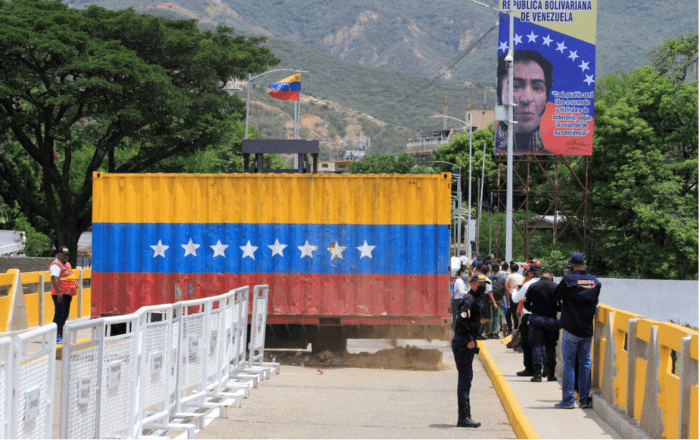
If we were to describe the Colombian-Venezuelan relationship in one line, it would be, “a constant tug of war between bilateral struggle and cooperation”.
Many people might not know this, but Colombia and Venezuela share far more than just a border.
They share a long and rich history of cultures and traditions. The two countries even marched into the battle together against the Spanish empire under the leadership of Simón Bolívar and became one independent nation.
That nation, Gran Colombia, dissolved in 1831, eventually giving form to Colombia, Venezuela, and Ecuador.
Since the early 20th century, Colombia and Venezuela have gone through several crises, negotiations, border unrest, and bilateral acts of aggression and violence.
Both countries have been plagued with dissident armed groups involved in drug trafficking, border unrest, and much worse.
This year, 2022, started with border area violence and disputes between the Joint Eastern Command, an alliance of rebel groups that emerged from the disbanded Revolutionary Armed Forces of Colombia (FARC), and Colombian guerrillas of the National Liberation Army (ELN).
These disputes caused thousands of civilians to flee the states of Apure, Venezuela, and Arauca, Colombia.
While Colombia worked on enhancing its relationship with the US on matters of global concern like the war on drugs, terrorism, poverty, and humanitarian crisis, Venezuela has always repelled America’s influence in the Latin American region.
This ‘America-hating’ socialist inclination of Venezuelan leaders, especially Hugo Chavez, is often considered the very reason behind the country’s economic, political, and law-and-order instability.
2019 Colombia Venezuela Border Crisis
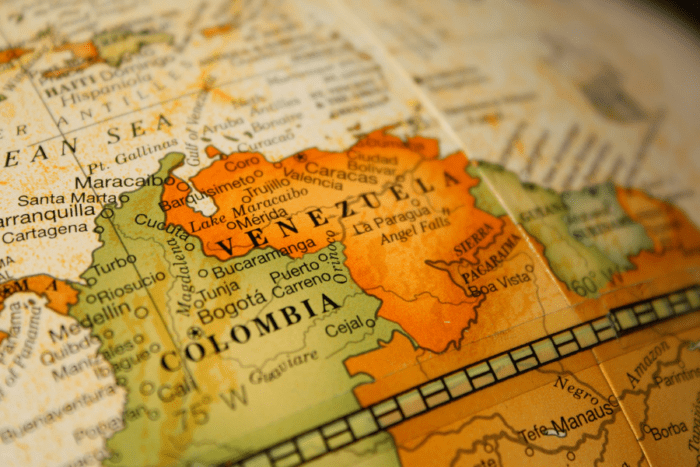
Tensions escalated when the US, along with the majority of the Western world showed their support for Juan Guaido as Venezuela’s Interim President, in 2019.
Following America’s lead, the then Colombian President Ivan Duque also went public with his disapproval of Maduro’s regime.
The political drama reached its climax on Feb 23, 2019, when Maduro announced that he is severing all ties with the ‘fascist government’ of Colombia.
He ordered all Colombian consul employees to leave Venezuela within 24 hours, and strictly condemned the actions of Colombia, at a rally, in the following words:
“We can’t keep putting up with Colombian territory being used for attacks against Venezuela”
Here, he was referring to a US-backed humanitarian aid that was to be delivered via the Simon Bolivar bridge, which he thought was a cover-up for international meddling in the Venezuelan territory.
Now, 3 years later, Gustavo Petro’s presidential win can change the whole scenario between the two countries, for the better.
For the US, not so much.
Why Does the US favor Colombia?
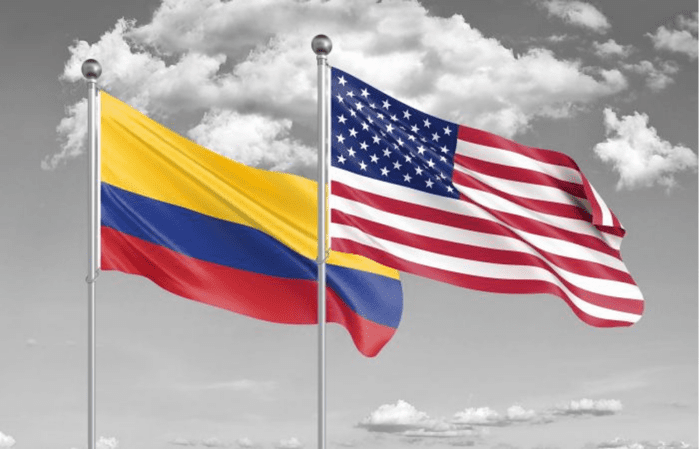
The US has always been a heavy supporter, and in many cases, an enabler, of the historically conservative political parties and leaders in Colombia.
Colombia, in return, has enabled the US with a unique and well-positioned stronghold in Latin America to practice its influence and manipulate the political and economic landscape of the region.
In the late 1990s, Colombia received billions of dollars as a part of the US-aided ‘Plan Colombia’ to battle guerrilla groups, strengthen their military, and optimize the law-and-order situation.
Over the years, the cordial relationship between the two countries has gradually progressed into an essential partnership.
Just recently, in March 2022, following the bilateral meeting between the two presidents, Joe Biden announced his intent to identify Colombia as a major non-NATO ally.
The US and Venezuela – No Love Lost Here
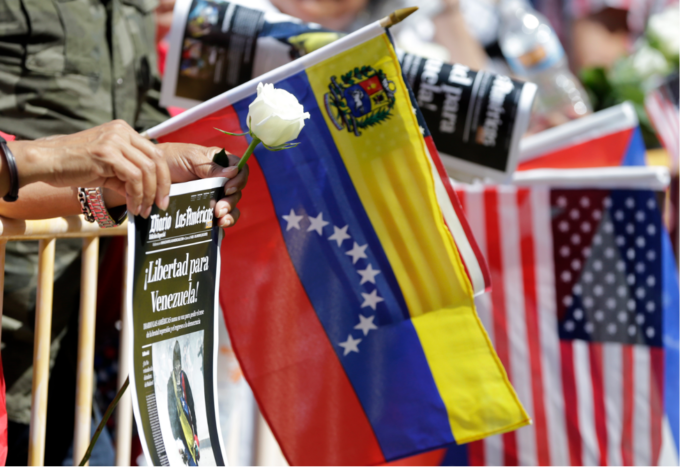
During his long presidential tenure, the uber-popular Hugo Chavez has done everything in his power to reduce America’s influence in Venezuela and South America, sometimes even going directly against the superpower.
He was an avid supporter of Cuban President Fidel Castro and used to supply petroleum to Cuba along with other countries at a generously subsidized rate.
In 2013, following the death of Hugo Chavez, his successor Nicolas Maduro occupied the presidential office. Under his rule, Venezuela saw even more violence (both by criminal groups and Venezuelan forces), protests, inflation, poverty, and the global outrage on the ongoing humanitarian crisis.
The Trump government fully backed the democratic opposition in Venezuela led by Juan Guaido, which led to more ill-will between the two countries.
Venezuela – A Poor Nation, Rich in Resources
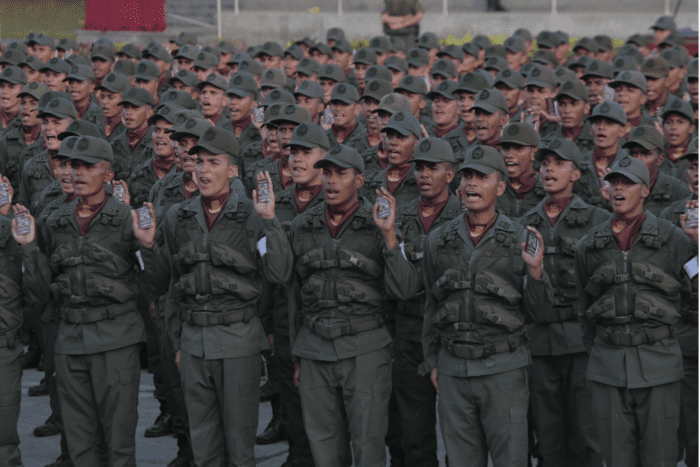
Despite having the world’s largest oil reserves of 303.8K million barrels, Venezuela is the poorest country in Latin America, with ever-soaring inflation and a lot of its citizens living under the poverty line.
If you cannot understand the surrealist nature of the above-mentioned statement, let us explain with a comparison.
With 97.8K million barrels, UAE has less than half of the oil reserves when compared to Venezuela.
With the power of this wealth source, UAE has built itself as one of the tax-friendly countries amongst westerners and easterners for its lavish lifestyle, rich diversity, and jaw-dropping skyscrapers – while Venezuela continues to set new records for poverty, civil unrest, and blaring humanitarian crises.
Now that you know about the dynamics between the US, Colombia, and Venezuela, let’s talk about how the Colombian President’s win affects it all.
Who Is Gustavo Petro, and how does he plan to change Colombia-Venezuela current relations?
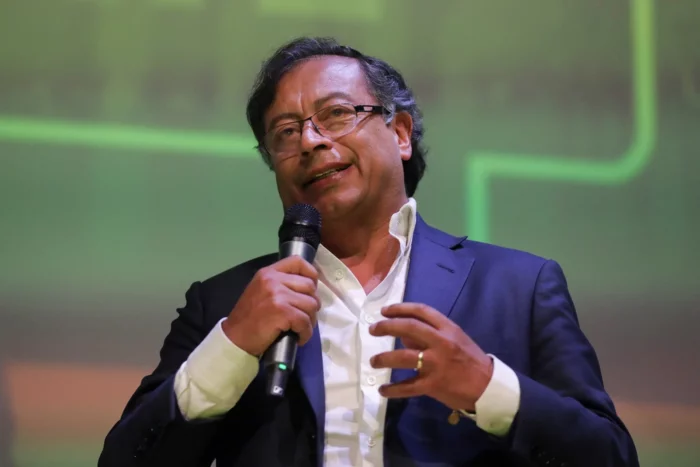
First Leftist President of Colombia
On Sunday, June 19, 2022, Gustavo Petro, an ex-member of the guerrilla group M-19, former mayor of Bogotá, and current senator, won the presidential election of Colombia and made history as the first leftist president of Colombia.
First Black Vice President of Colombia
Petro’s win was not the only landmark outcome of the 2022 Colombian presidential election. The people of Colombia also elected their first black woman vice president Francia Marquez.
Francia Marquez’s past is as, if not more, fascinating and struggle-ridden as Petro. Pregnant at 16, she had to clean homes and work at restaurants to care for her daughter, all while studying for a law degree.
Not many Colombian electoral candidates can relate to her background and struggle, and that is what made her a perfectly relatable candidate for the Colombian masses.
Petro-Marquez Administration: What Sealed their Historical Presidential Win?
It’s incredible to think how Petro swayed the public opinion in his favor in Colombia, a country historically led by far-right conservative politicians.
The 2022 presidential election was dominated by Colombia’s social issues, rising inequality, and the ongoing crisis with Venezuela.
Petro won by promising to fight inequality, redistribute pensions, and offer free public universities.
The Colombian citizens welcomed the promise of relief and decided to give a ruling chance to the never-tried leftist government.
Gustavo Petro and his plans for Colombia Venezuela Diplomatic Relations
During his presidential campaign, Gustavo Petro repeatedly talked about his plans to renew diplomatic ties with the neighboring country.
President Nicolas Maduro was one of the first heads of state to congratulate Gustavo Petro on his historical win in Colombia.
Venezuelan authorities have also wholeheartedly celebrated this new regime change for Colombia.
Fulfilling his campaign promises, Petro has already talked to the Venezuelan government to reopen borders and renew the diplomatic relationship.
In his tweet, he said:
“I have spoken with the Venezuelan government to open the borders and re-establish the full exercise of human rights at the border”.
Maduro also tweeted about his talk with President-elect Petro:
“I spoke with the president-elect of Colombia Gustavo Petro and on behalf of the Venezuelan people, I congratulated him on his victory. We discussed the willingness to restore normalcy at the borders, various issues on peace and the prosperous future of both peoples”.
For the first time in history, both countries are led by leftist leaders, and although the border situation as complex as the Colombo-Venezuela border cannot be reversed overnight, the people of both countries are finally optimistic about the situation – after a long time.
What does Petro’s win mean for Colombia’s friendly relationship with the USA?
Not long after his win in the elections, Petro tweeted:
“…I have just held a very friendly conversation with U.S. President Biden”.
So, things seem to be smooth between the two countries currently.
But Petro had never shied away from in the past to critique the US’s idea of the “war on drugs” and how it affected the Latin American region.
That, on top of his leftist ideology, makes for an unpredictable future with the US, which has historically been a huge fan of far-right conservative Colombian leaders.
The US, which has threatened Venezuela with military intervention in the past, also may not like the two neighboring nations getting closer, because it will mean losing Colombia as its stronghold in Latin America.
So the situation may seem optimistic for the people of Colombia and Venezuela who are sick and tired of the violence around the border area and the cross-country migration, but not so much for the US and its foreign regional plans.
Go Where You Are Treated Best
If you want to take one thing from this article, it should be this:
Don’t tie yourself to any one country and go where you are treated best.
On a random Sunday, the Venezuelan government closed its borders with Colombia causing frenzy among its people who felt trapped in a struggling country, and just like that, on a random day, three years later, they may open it up too.
Countries, borders, and governments are that unreliable. Why bet your whole life, wealth, and dreams on them?
Why not have a Plan B for when things go south?
The rapidly-changing global political landscape, especially the United States’, is all the more reason for you to prepare and secure yourself.
No one thinks it will happen to them until it does. It’s better to be early than one day too late.
Our team sits down with government officials, knows the loopholes of the industry, and cares about delivering your holistic plan and meeting your needs.
Reach out, our team will be happy to serve you.


How to Get UAE Citizenship – The Complete Guide
Sovereignty – both national and personal – shapes ambition, secures wealth, and defines status in a shifting global order. For the high-achieving global citizen, acquiring a second or even third passport is more than a lifestyle upgrade; it’s a strategic move in long-term financial and geopolitical positioning. But not all citizenships are created equal – […]
Read more

A Gateway to Central Asia: New Kazakhstan Golden Visa Program for 2025
Central Asia just raised the stakes in the golden visa game. In May 2025, Kazakhstan officially launched a 10-year Golden Visa program in an ambitious move to position the country as a serious contender in the global investor migration space. At a time when other international regions are rolling back their citizenship and residency options, […]
Read more

Top Countries Offering Golden Visas in 2025
Residency is no longer about lifestyle – it’s about leverage In an increasingly unpredictable world, Golden Visas offer something most governments can’t: certainty in exchange for capital. They are more than migration tools; they are strategic safeguards offering residence rights, future citizenship, global mobility, and access to tax-friendly jurisdictions. For investors, entrepreneurs and globally minded […]
Read more




